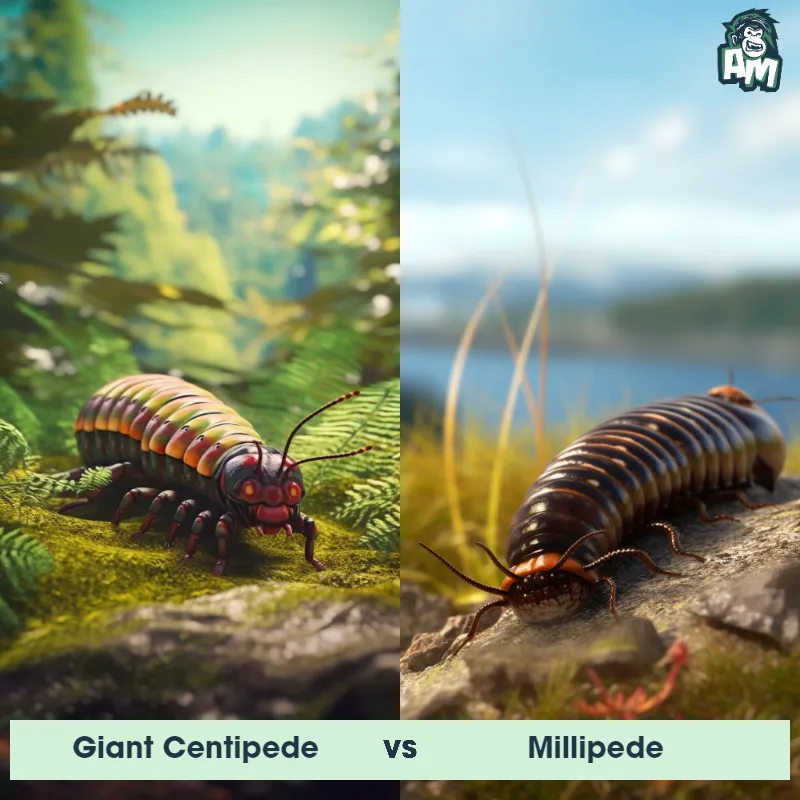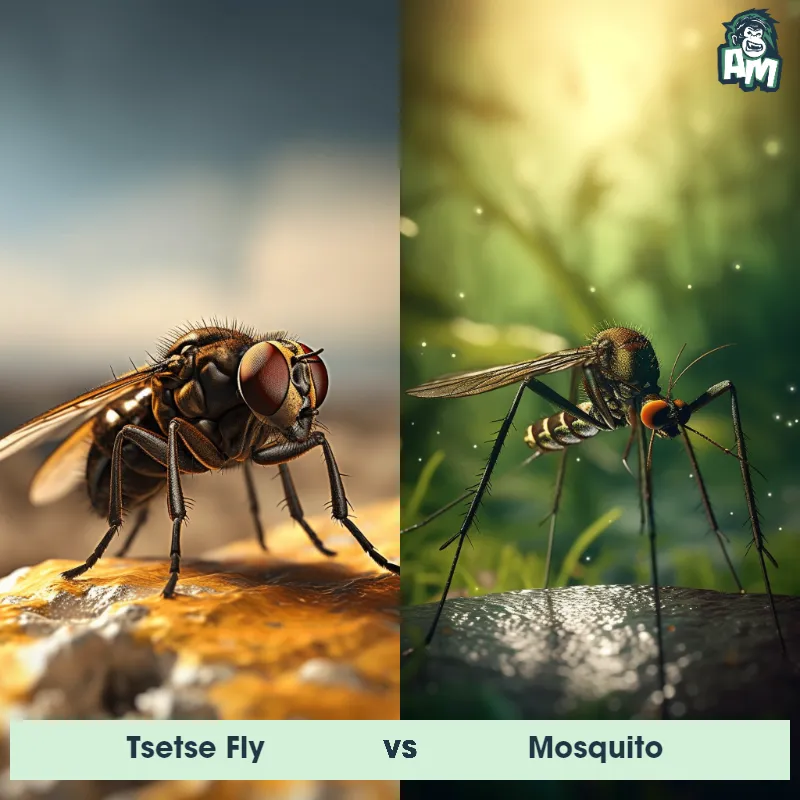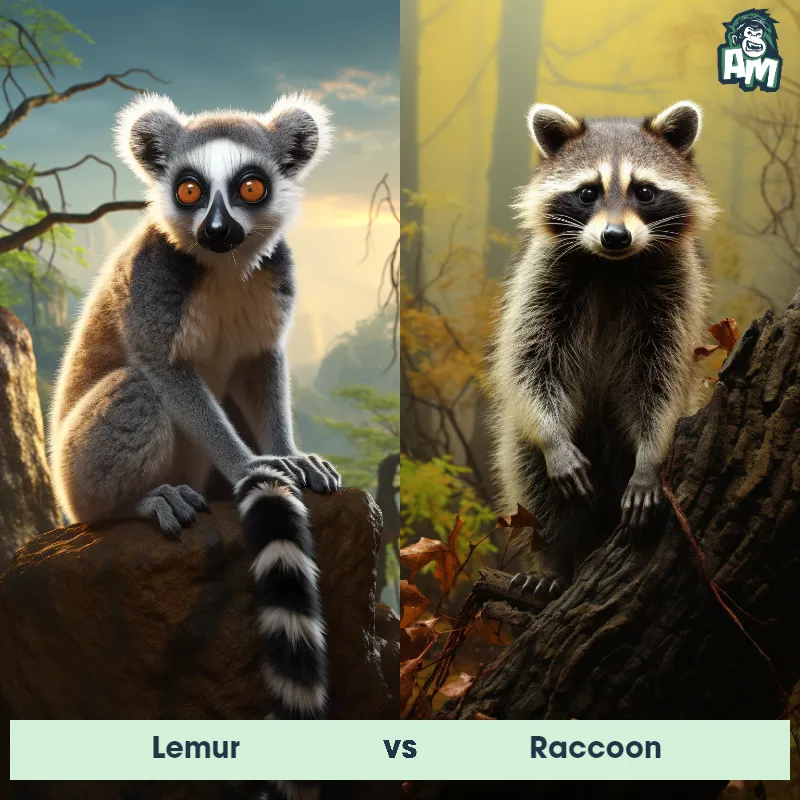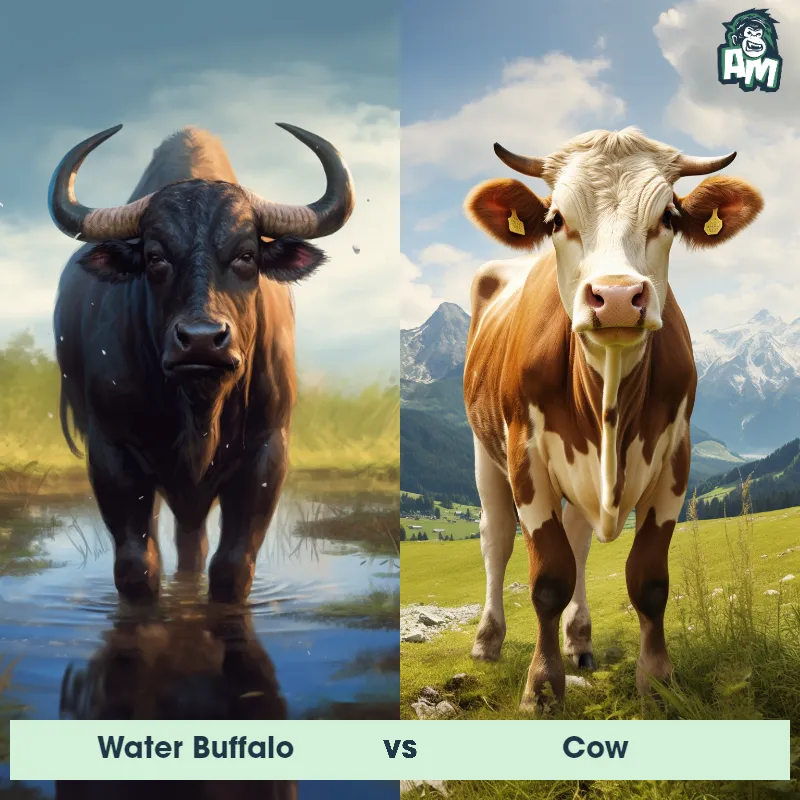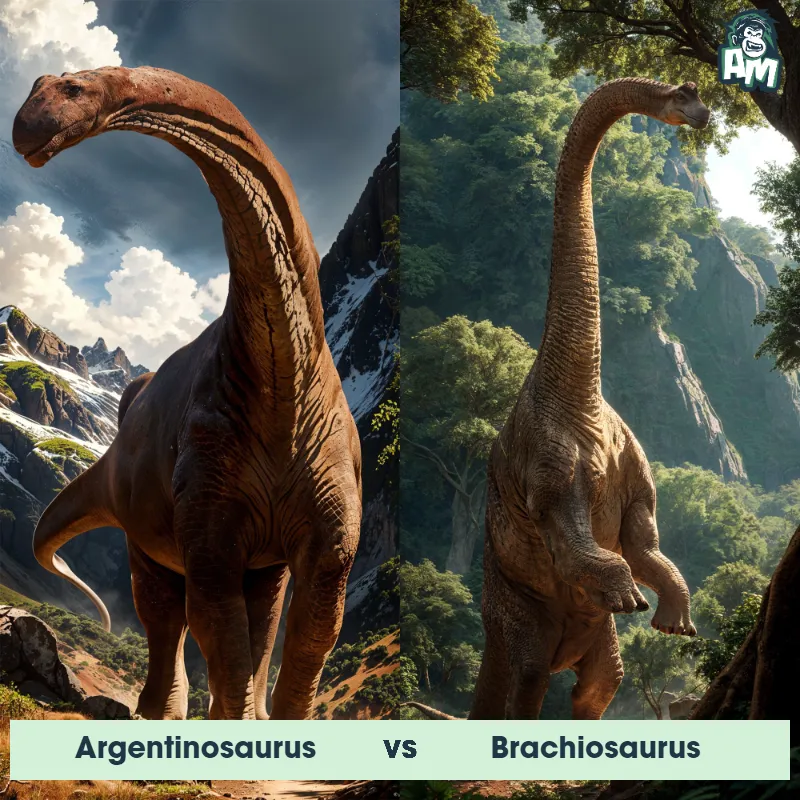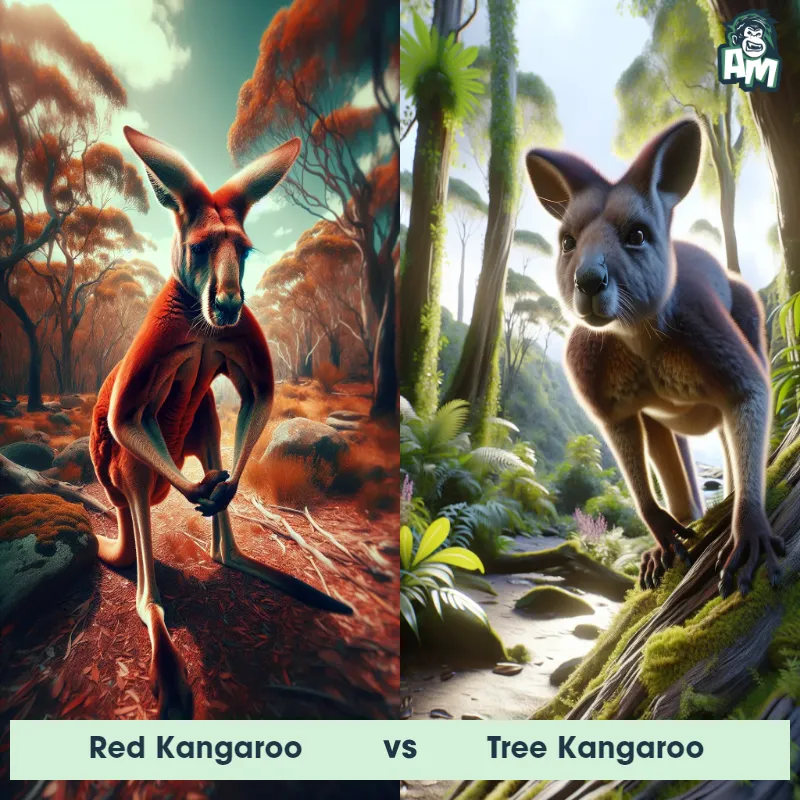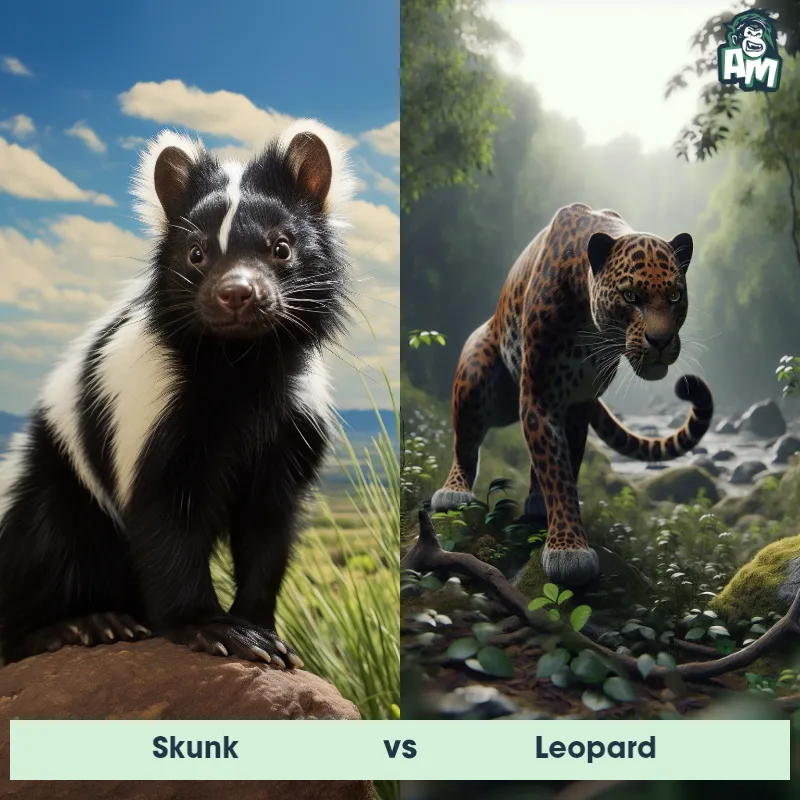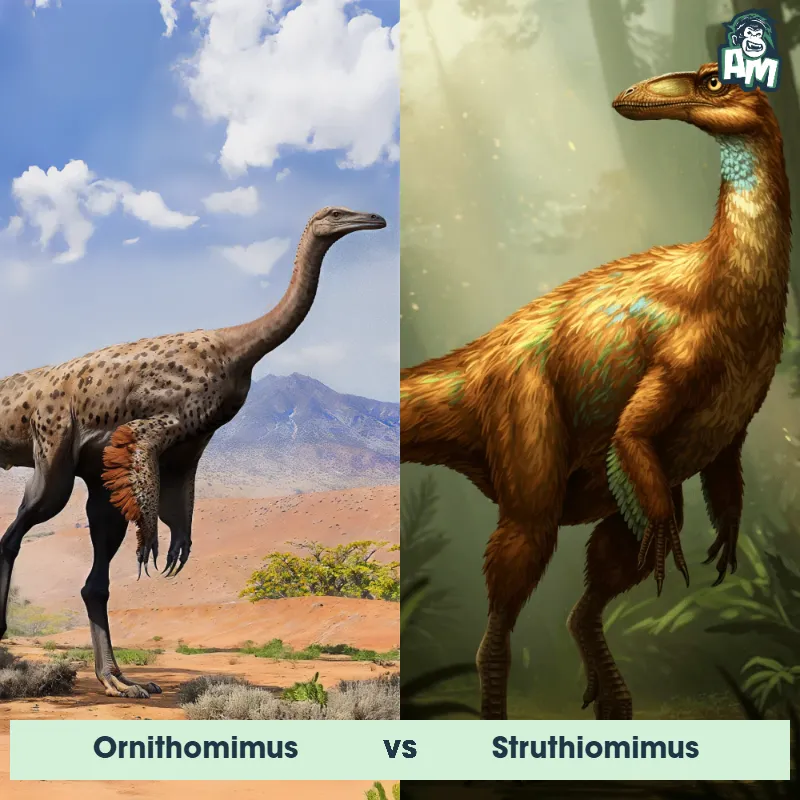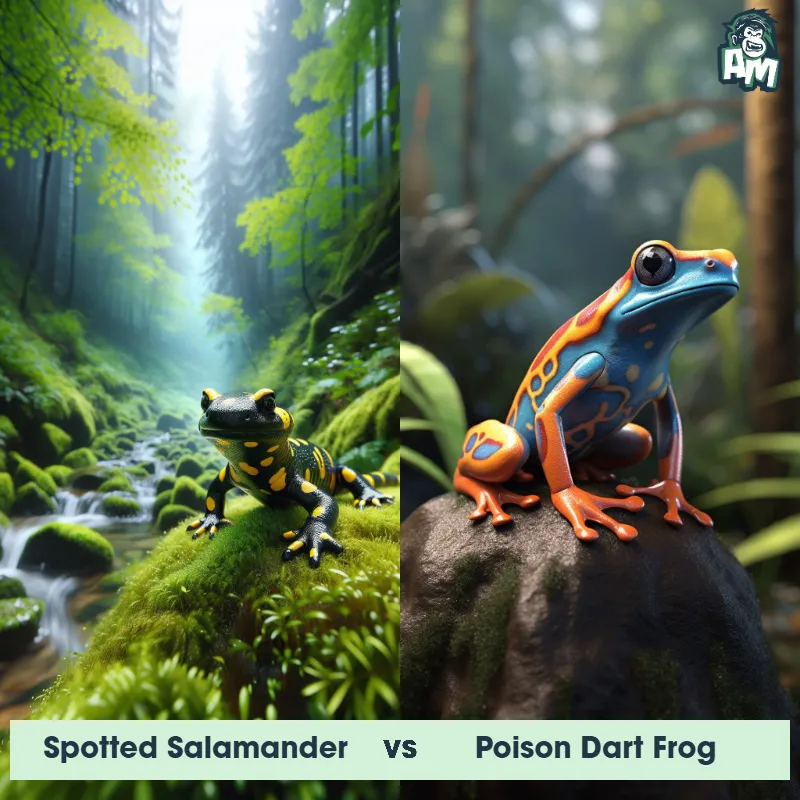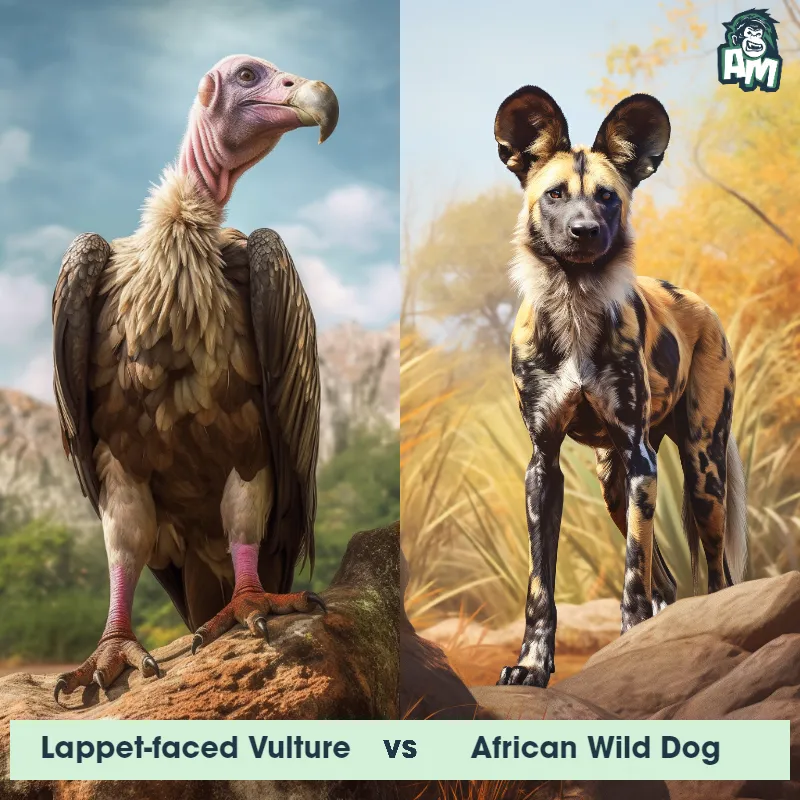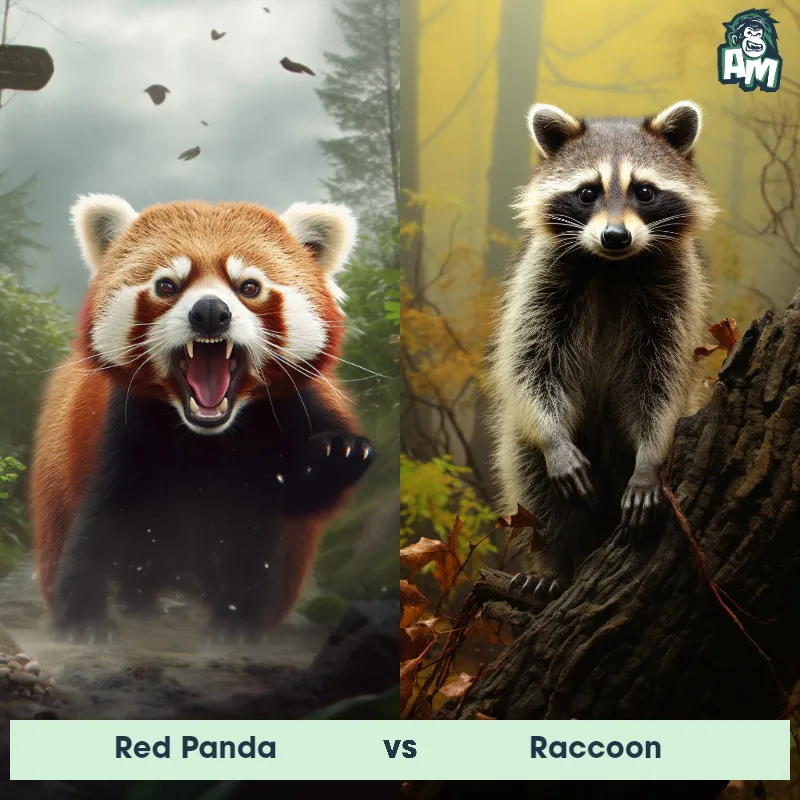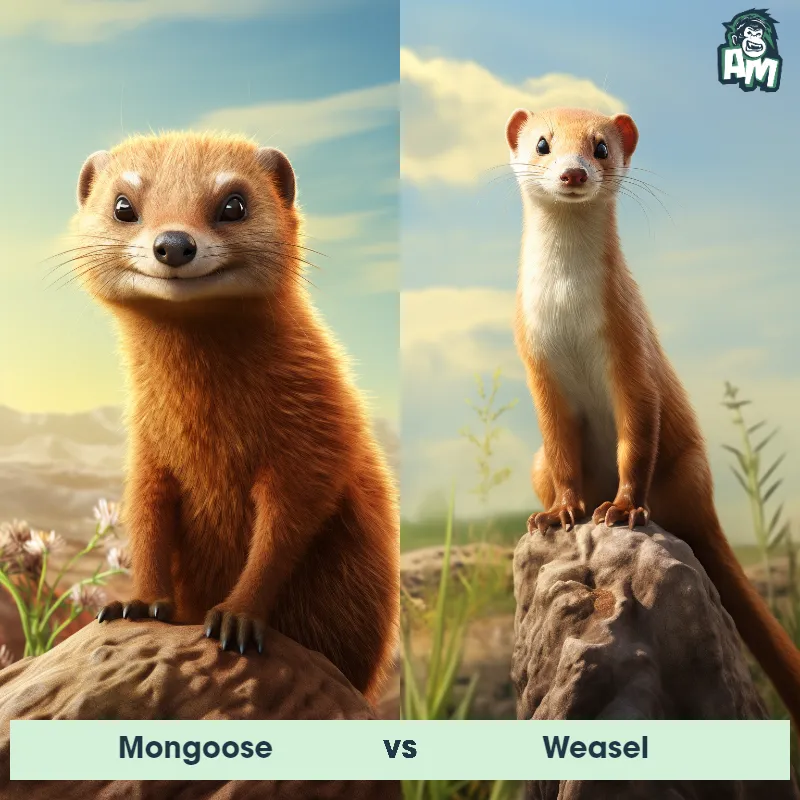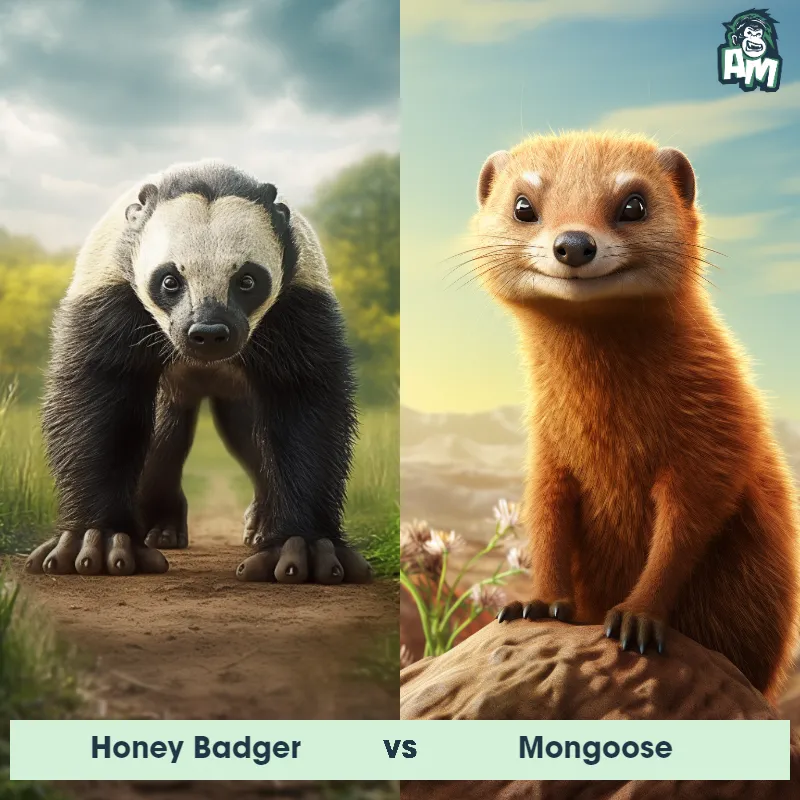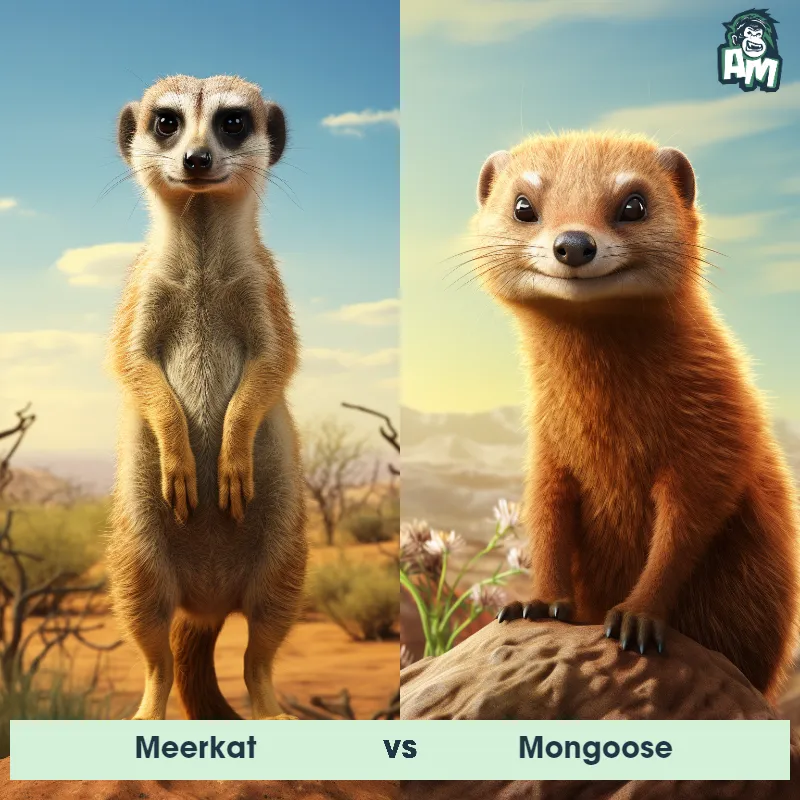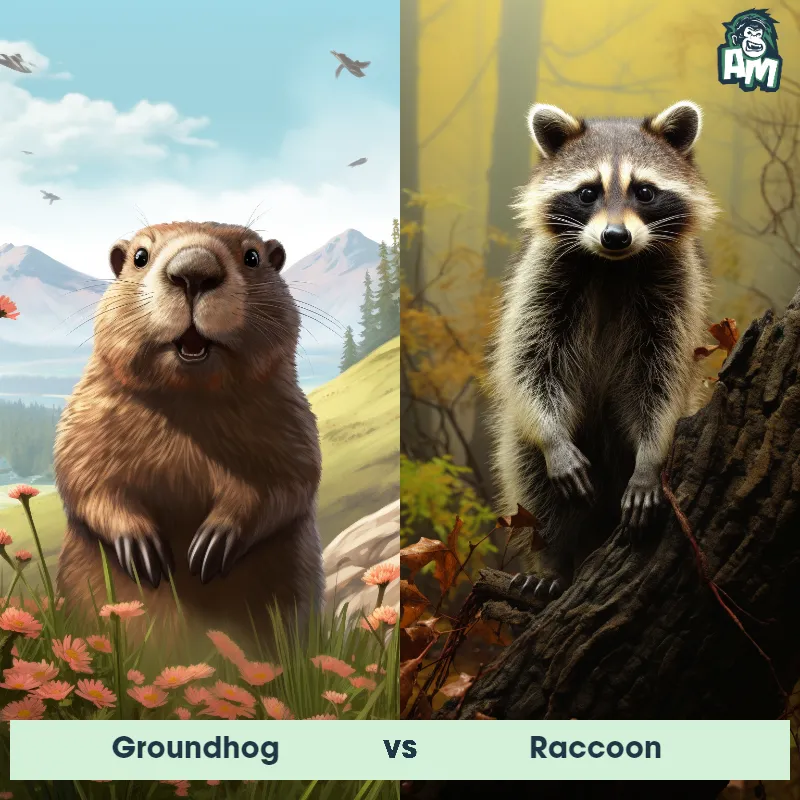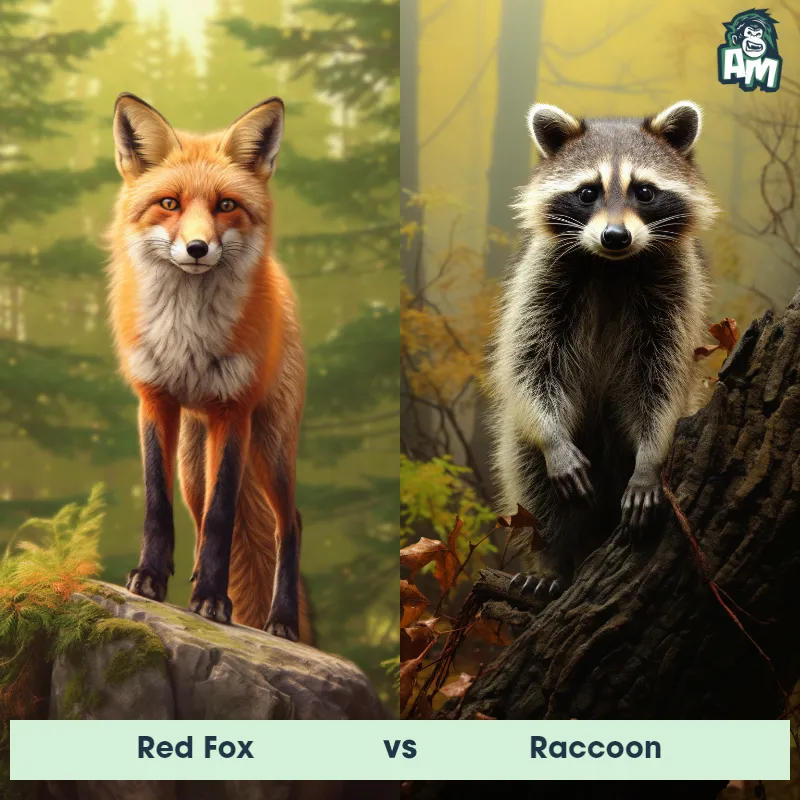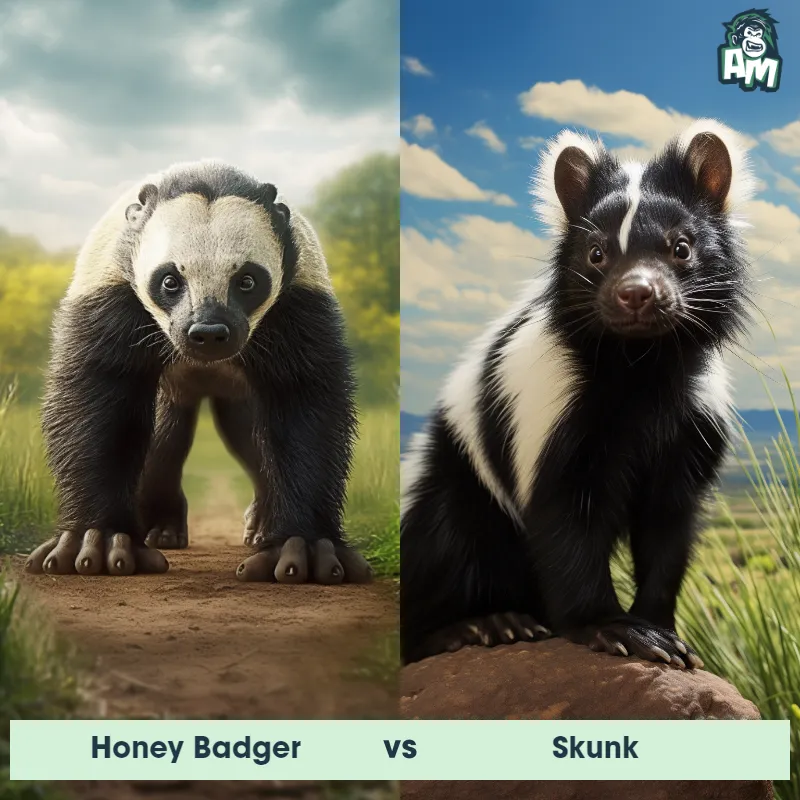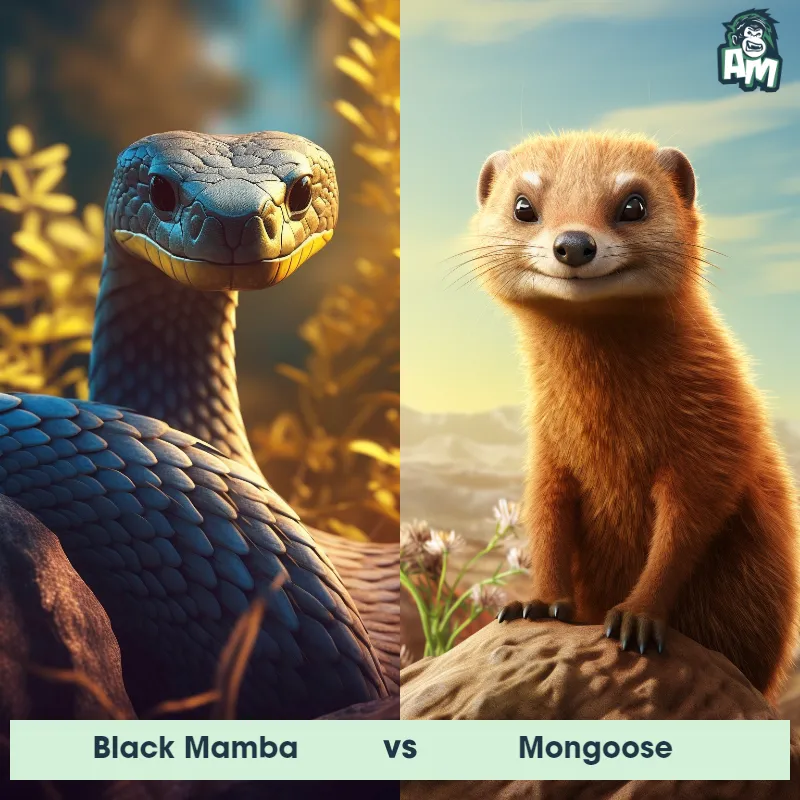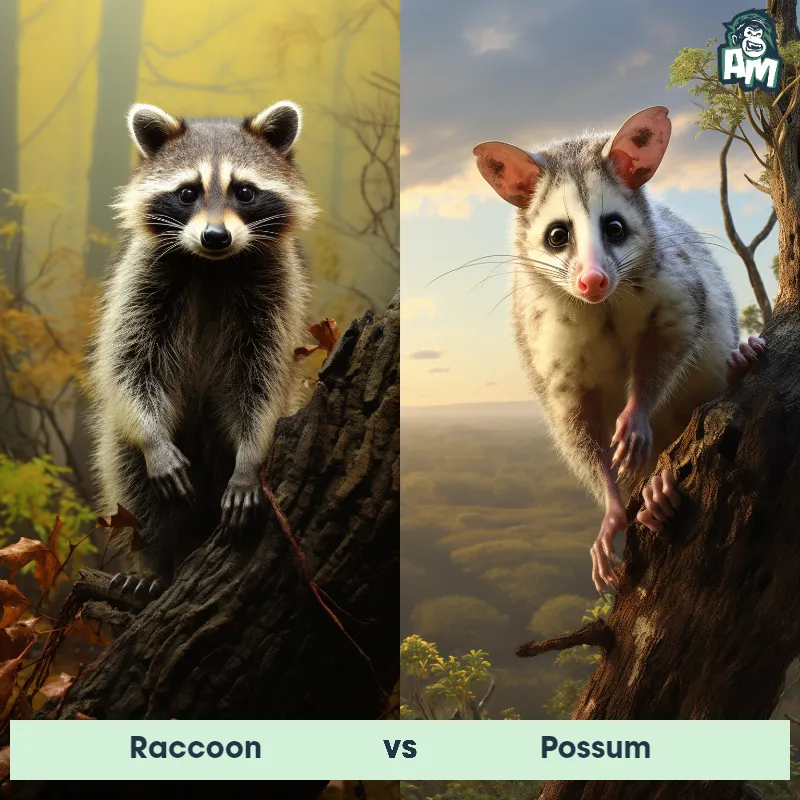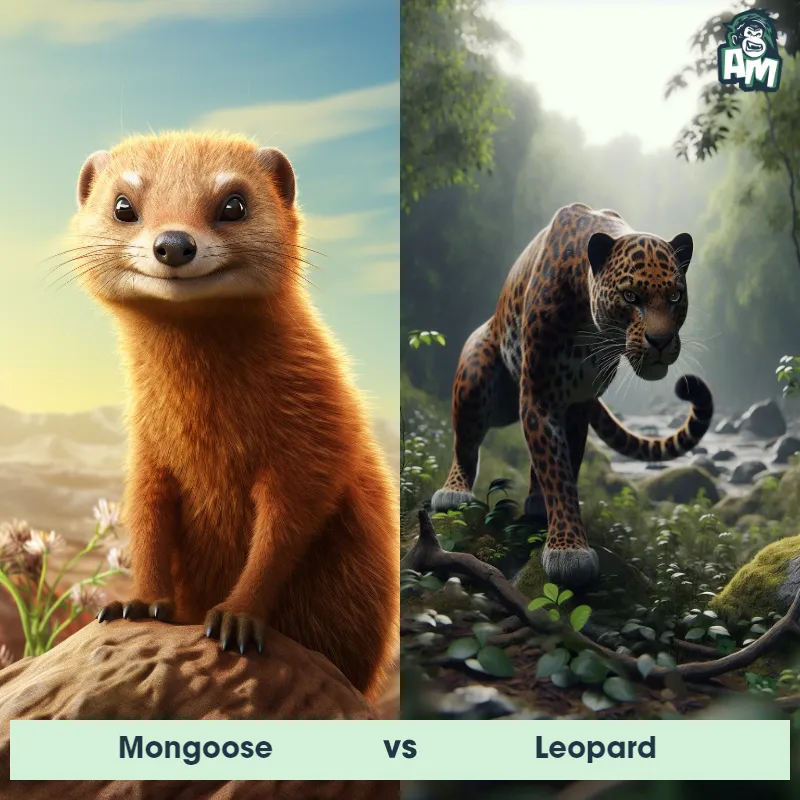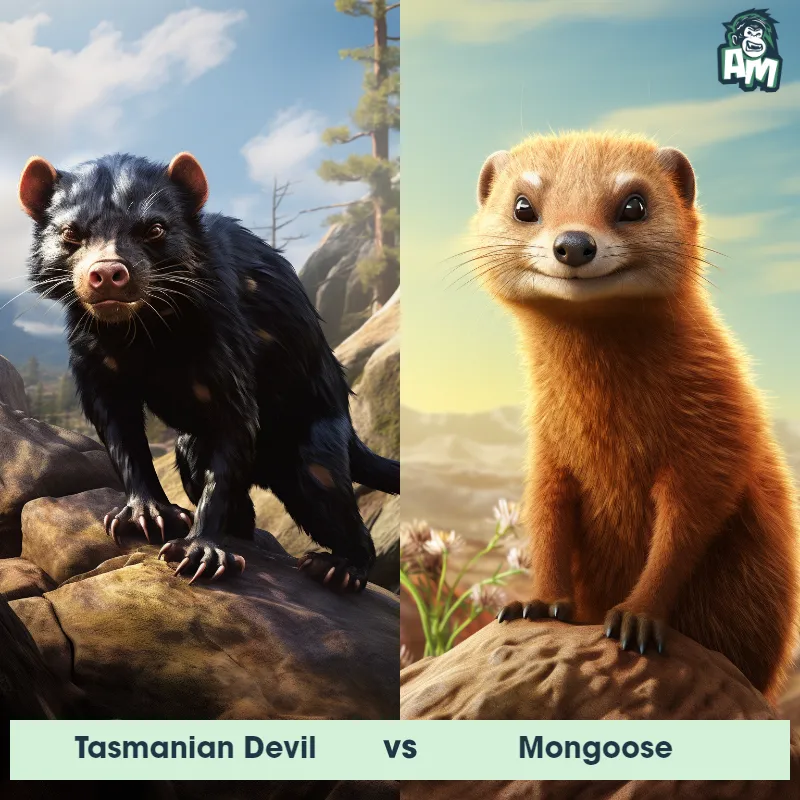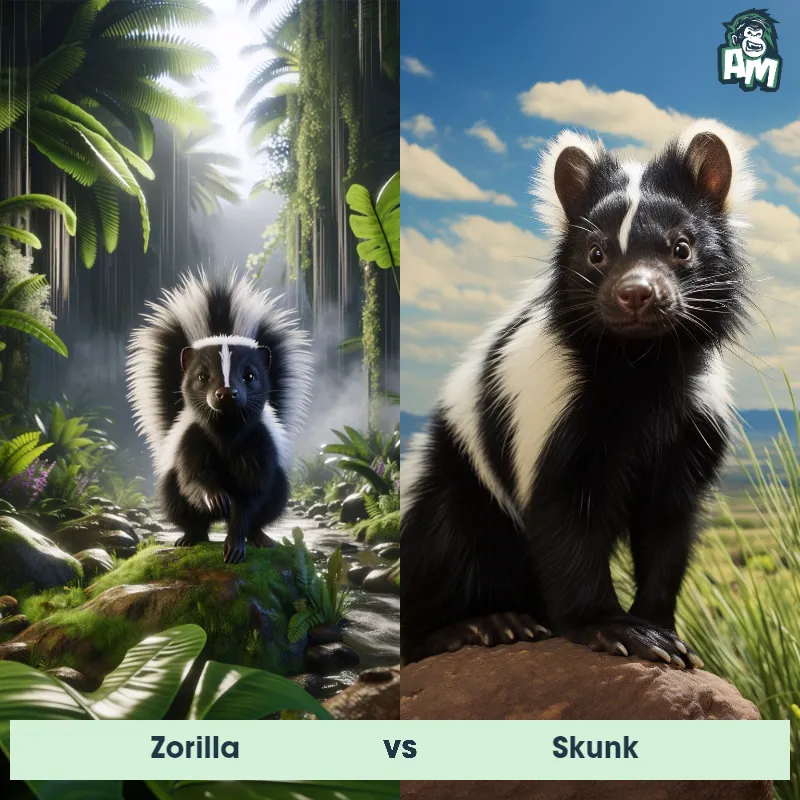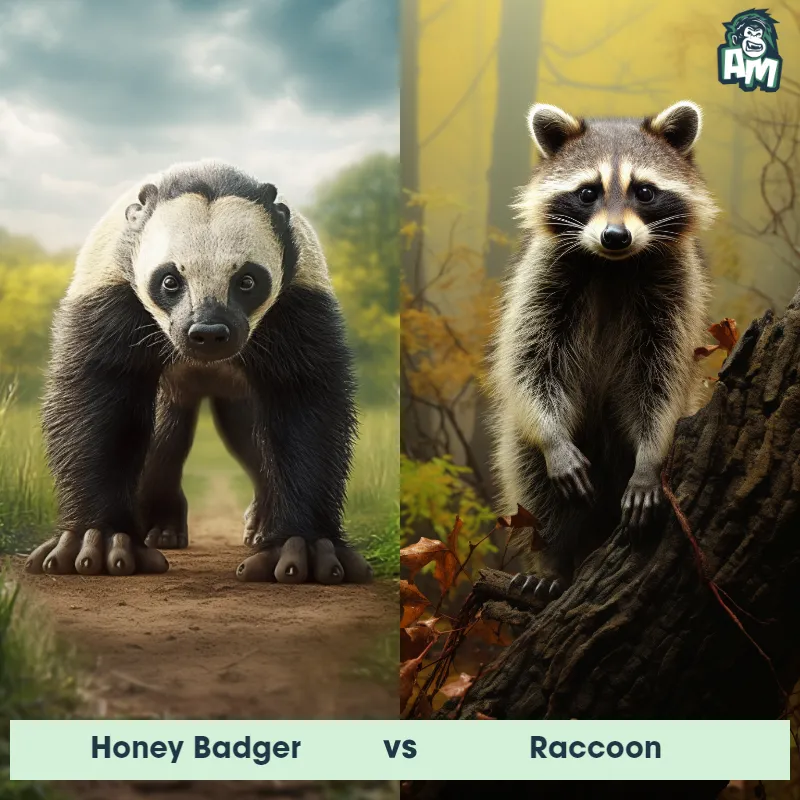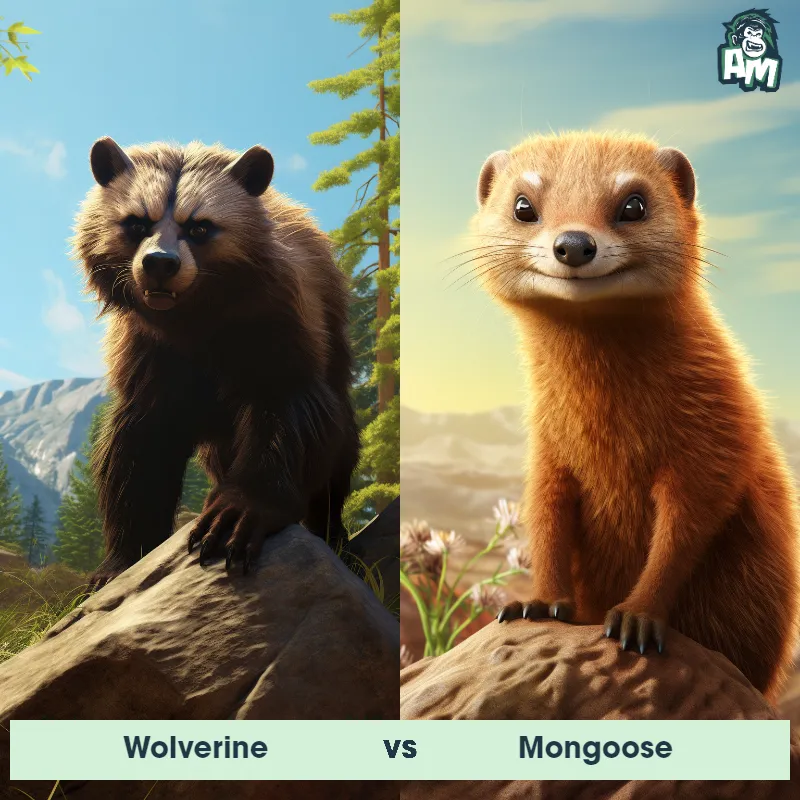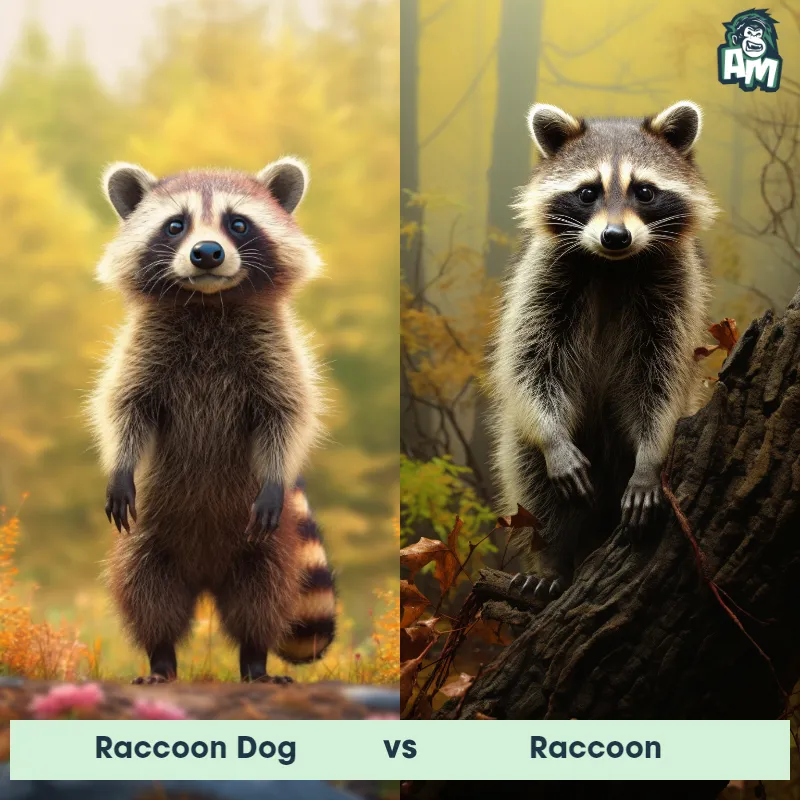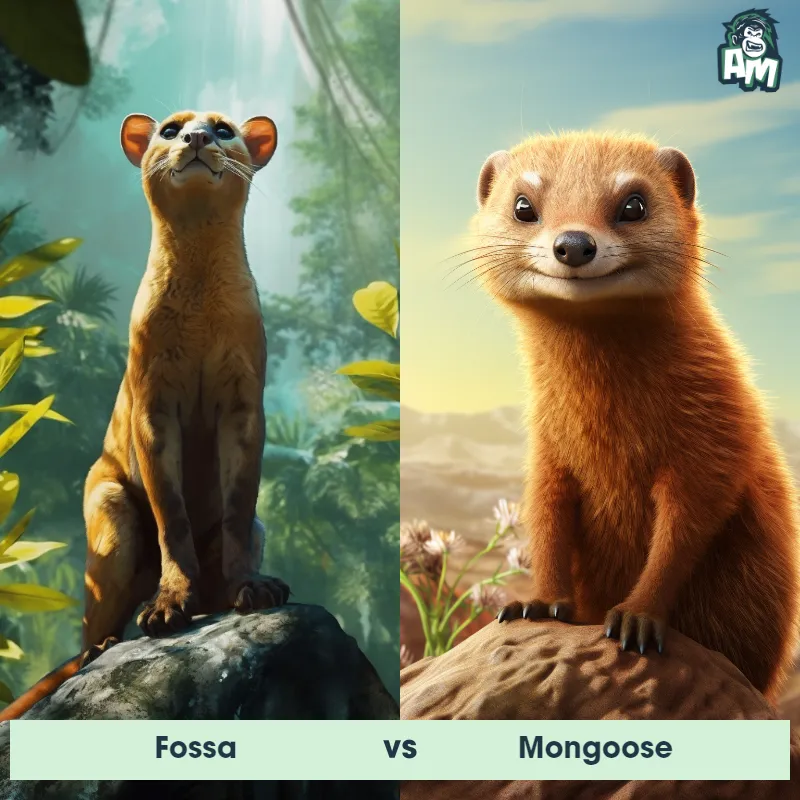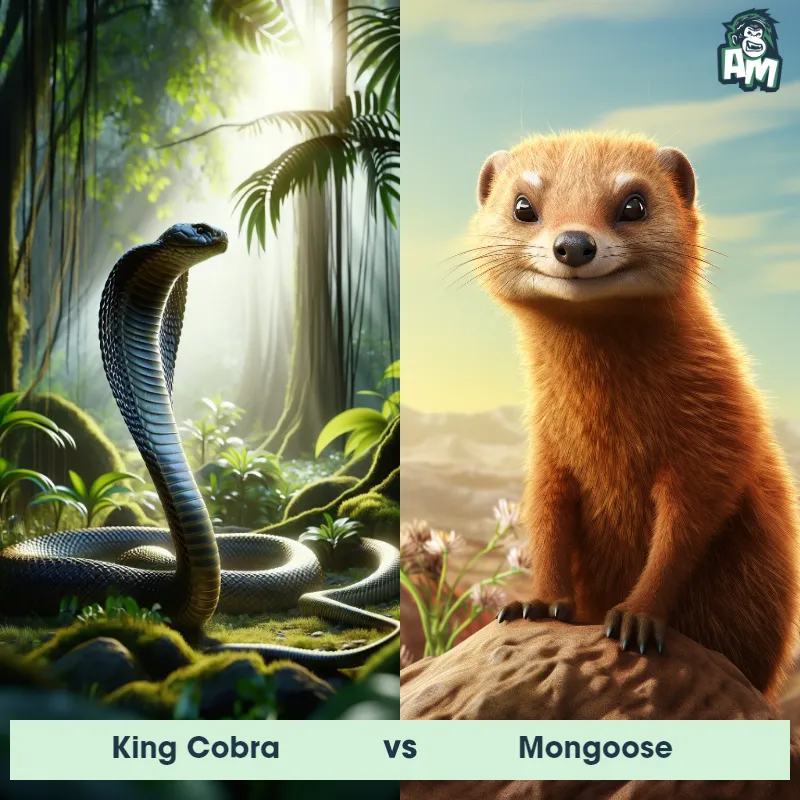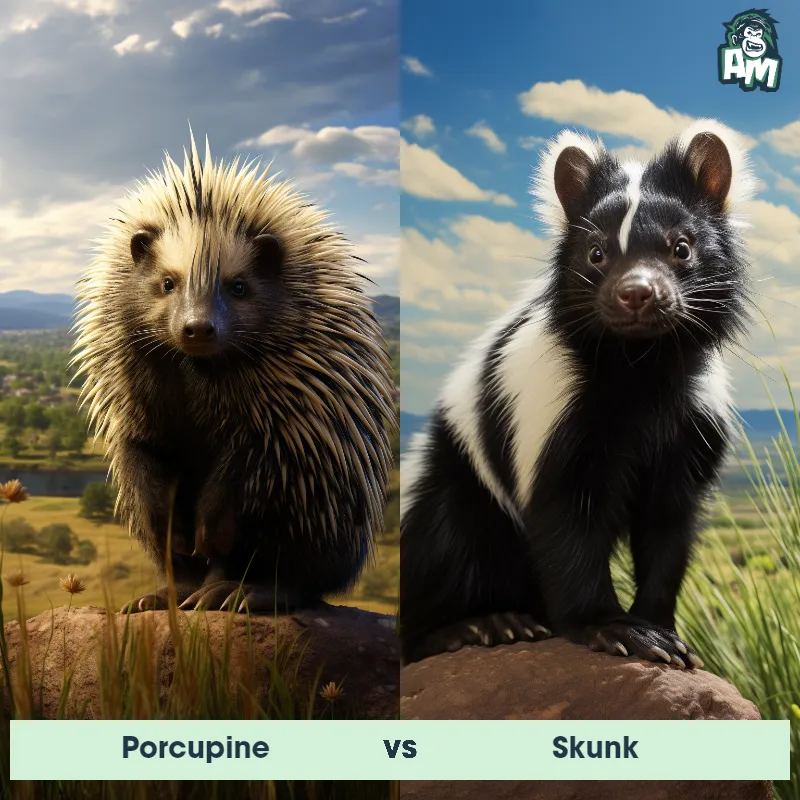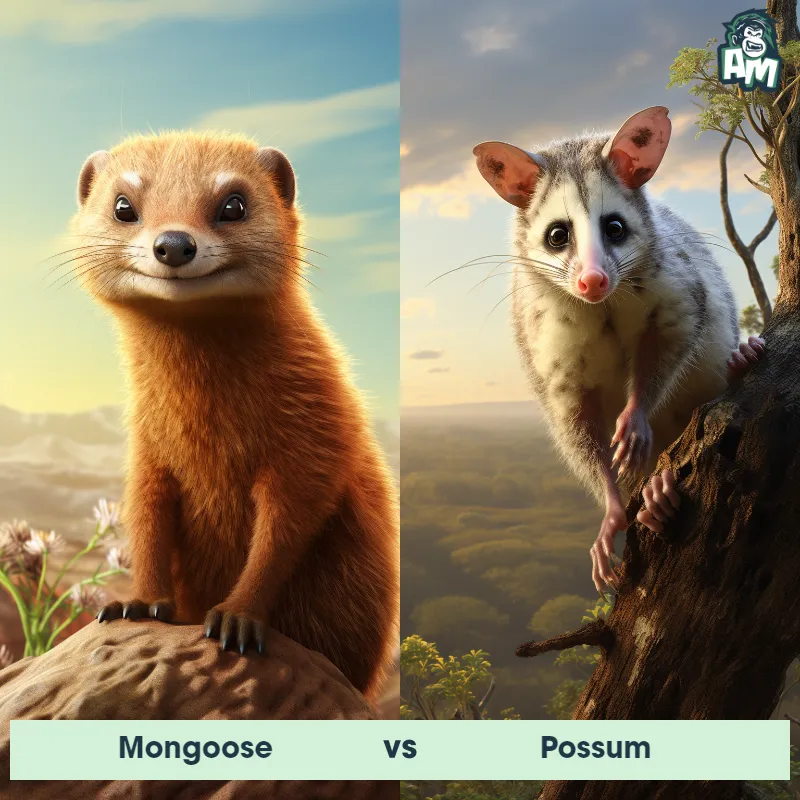Raccoon vs SkunkSee Who Wins

Ladies and gentlemen, welcome to this fascinating match between two of nature's most cunning creatures. On one side, we have a nimble and wily Raccoon known for its quick reflexes and keen intellect. On the other side, we have a sly Skunk with a potent defensive mechanism that can turn the tide of battle in a matter of seconds. The air pungent with anticipation as these two animals step onto the battleground with firm resolve.
Contender 1: Raccoon
The Raccoon is a medium-sized mammal native to North America, best known for its distinctive black "mask" over the eyes and bushy, ringed tail. These nocturnal creatures have a stocky build and grayish-brown fur. Raccoons are about 2 to 3 feet long and weigh between 10 to 20 pounds. Known for their dexterity, raccoons have nimble hands that they use for a variety of tasks, including opening trash cans and doors, which leads to their reputation as opportunistic feeders and scavengers.
Fun Fact: Raccoons are noted for their intelligence, with studies showing that they are able to remember the solution to tasks for up to three years.
Contender 2: Skunk
The skunk is a small to medium-sized mammal best known for its ability to secrete a pungent odor when threatened. Skunks are identifiable by their black fur with a distinctive white stripe that runs down their back and tail. They have a small head, short legs, and a bushy tail. Skunks are omnivores and feed on a varied diet, including insects, small rodents, fruits, and plants.
Fun Fact: Skunks are not as indiscriminate with their spray as people often believe; they can accurately spray their scent at a target up to 10 feet away.
Matchup Stats
| Raccoon | Skunk | |
|---|---|---|
| Size | 2 to 3 feet long (60 to 90 centimeters) | 8-19 inches (20-48 cm) |
| Weight | 10 to 20 pounds (4.5 to 9 kilograms) | 1.1-14 lbs (0.5-6.3 kg) |
| Speed | 15mph (24km/h) | 10mph (16km/h) |
| Key Strength | Dexterity and intelligence | Ability to spray a pungent odor |
| Biggest Weakness | Lack of size and strength compared to larger predators | Limited spray range (up to 10 feet) |
Current Votes
Raccoon vs Skunk
See Who Wins
View More Matches
Looking For More?
Similar Matches
Scientific Stats
| Raccoon | Skunk | |
|---|---|---|
| Scientific Name | Procyon lotor | Mephitidae |
| Family | Procyonidae | Carnivora |
| Habitat | Forests, mountainous areas, coastal marshes, and urban areas | Forests, grasslands, and suburban areas |
| Geography | North America | North and South America |
| Diet | Omnivorous, eating berries, insects, eggs, and small animals, as well as trash and pet food in urban areas | Omnivorous (insects, small rodents, fruits, and plants) |
| Lifespan | 1.5 years - 3 years | 2 years - 10 years |
Key Differences between Raccoon and Skunk
- Tail: Raccoons have a long, bushy tail with alternating black and gray rings, while skunks have a fluffy tail with a single white stripe running down the center.
- Fur coloration: Raccoons have a distinct black mask-like pattern on their face, with grayish-brown fur on their body, while skunks have a black body with white stripes or spots running down their back.
- Size: Raccoons are generally larger than skunks, with adults weighing between 10 to 30 pounds, while skunks typically weigh between 6 to 12 pounds.
- Behavior: Raccoons are agile climbers and have dexterous front paws, while skunks are more ground-dwelling and have less dexterity in their paws.
- Facial features: Raccoons have a pointed snout and small, rounded ears, while skunks have a more elongated snout and larger, pointed ears.
- Body shape: Raccoons have a stocky, compact body with short legs, while skunks have a more elongated body with longer legs.



